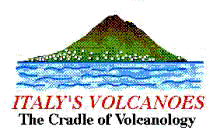| Etna
index |
||
| Geology | Geological history | Cones and craters |
| Eruptive characteristics | Eruptions before 1971 | Eruptions since 1971 |
| Etna and Man | References | Web sites |
| Weather forecasts | FAQ | Latest news |
Frequently
asked questions about Etna
Is
being a volcanologist a dangerous job?
![]()
Is it? Goooood question. You may have read Stan Williams' book "Surviving Galeras" and/or its counter-book "No apparent danger" by Victoria Bruce, and think "Gee one has to be crazy to be a volcanologist". I personally think that it is wrong to simply say doing the volcanologist is a dangerous job. It CAN be dangerous, but there are also many ways to prevent this and work tranquilly on active volcanoes without exposing oneself to great danger. Me and my colleagues who study Etna feel like doing a job just as someone working in an office, and much of our work is indeed done in the office, in front of a computer, or in a laboratory. Work on Etna, especially when it is erupting, of course is nothing like that. It is exciting, at times frustrating, and if one gets close to an erupting crater there is a certain risk. But Etna rarely takes us by surprise. We believe to know this volcano well enough to understand when a situation is too dangerous and when it is not. This does not exclude that someone of us might be wrong and caught in a sudden explosion, but my personal experience is that any volcanologist ending up in a rain of bombs or scoriae has been perfectly aware of this possibility and nonetheless chosen to enter into an area at risk. Yet so far no volcanologist has ever been killed on Etna (and surprisingly few non-volcanologists have been killed by this volcano), and none of my colleagues (myself included) seems to be willing to be the first to obtain this pitiful fame.
Most volcanologists are not the heroes that you may have seen in newspapers and in television who put on weird-looking asbestos suits and clamber across moving lava flows near explosively erupting vents to pick lava samples. Most of us never think something like "it is on an erupting volcano that I feel best" although being close to one of them is certainly an extraordinarily thrilling and elating experience. I must admit that I feel extremely good as well at home with my wife or going out with friends or taking a long walk alone in the vast forested areas on the flanks of Etna. I do not search the thrill of danger and am not likely to render the photogenic impression of a cool-hearted "volcano chaser" who knows nothing better than to scramble across endless lava fields (preferably if they are hot or still moving) or to enjoy a refreshing shower of volcanic projectiles. If I need lava samples I find them in equal quality in a more distal position of a lava flow, remote from falling ejecta. Each time a hail of lapilli (or in the worst cases, bombs) falls around me I swear that this will be the last time that I expose myself to such a danger; this is among the least pleasant experiences that I can tell of. At least I am sure to wear a hard hat in any occasion when a repetition of this experience is even a remote possibility. Fortunately there have been few of these close encounters with the coarse-grained fallout of volcanic activity.
Believe it or not, but it is an even less pleasant experience to have finished a day of work on Etna and nearly end up in a car accident while returning home. I swear that it is never me to provoke these quasi-crashes since I do not drive (don't ask me for the reasons, but there are a few). Other car drivers to me are much less predictable and thus much more dangerous than Etna. And if we really feel the need to reason about dangers, it is not volcanoes that are dangerous. LIFE is dangerous. It is full of traps of all kinds, so if we feel like pondering on the dangers from volcanoes, it is appropriate to ponder about all the other dangers as well. In that case we would soon be in urgent need of an extended session at a psychiatrist's. Better enjoy life as long as this is possible, and better enjoy volcanoes and the fascinating search to unravel their secrets. I am far too curious to see what Etna will do in the future to risk my life at such an early stage.
End
of the Etna FAQ
